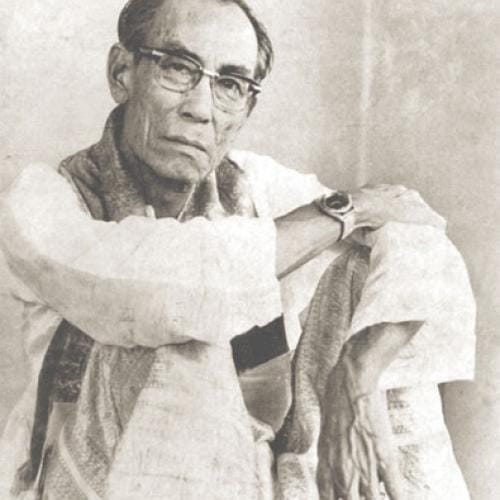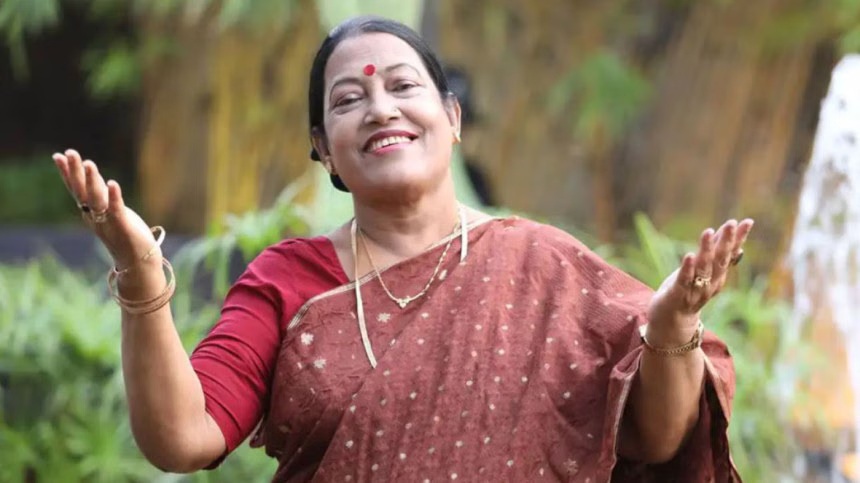SD Burman’s Cumilla home to be transformed into a musical museum

The birthplace of legendary composer and singer Sachin Dev Burman—universally remembered as S D Burman—is set to be preserved as a music museum in Cumilla, under a new government initiative.
The Ministry of Cultural Affairs has tasked the Bangladesh National Museum with overseeing the plan. A three-member committee, led by Md Serajul Islam of the National Museum, has already begun feasibility studies at Burman's ancestral home in Chartha, Cumilla.
"We are considering transforming the house into a full-fledged music museum and cultural complex," Serajul Islam said after visiting the site. "It will include archives of Burman's work, research facilities, an open stage, and a music education centre. Such a project would enshrine both his legacy and Bangladesh's cultural heritage."

The committee is also reviewing the possibility of establishing similar museums at the ancestral home of Ustad Alauddin Khan, the eminent multi-instrumentalist from Brahmanbaria.
Officials and cultural activists in Cumilla have long pressed for Burman's home to be preserved. Speaking to BSS, Assistant Commissioner Hasibur Rahman Parag described it as "a matter of pride not only for Cumilla but for the entire country. A museum here will inspire generations."
Local organisation Oitijhyo Cumilla has been campaigning since 2012 for the site's protection. Its president, Jahangir Alam Imrul, noted that the house has been partially restored over the years and hosts an annual "Sachin Mela" on the composer's birth anniversary. "If a permanent museum is established, Cumilla will emerge as a cultural destination for both domestic and international visitors," he said to BSS.

Music researchers agree. They argue the house could become a hub for academic study, offering students access to rare documents, photographs, notations, and audio-visual archives. "Burman is more than a musician—he is a symbol of Bangladesh's cultural identity. Preserving his birthplace is a national responsibility," one researcher noted.
Born in 1905 (some sources cite 1906), Burman grew up in Chartha, where his father Nabadwip Chandra Deb Burman had settled after leaving the Tripura royal family amid political turmoil. His childhood was shaped by the rhythms of Bhatiali folk songs sung by boatmen on the Gomti River and the melodies of the Bede community—sounds that would later define his music.
He studied first at Cumilla Zila School, then Victoria College, before enrolling at Calcutta University, where he gained recognition as a singer. His breakthrough came in 1930, when he performed at the All India Music Conference.

From there, his career blossomed—from Kolkata Betar to the studios of Mumbai, where he became one of the most influential composers of Indian cinema. His melodies, often laced with folk inflections, defined an era and were immortalised by voices such as Lata Mangeshkar, Kishore Kumar, and Geeta Dutt. He also left behind a memorable body of songs in his own earthy, soulful voice.
His son, R.D. Burman, later carried the family's musical legacy forward, reshaping Hindi film music for a new generation.
Burman's ancestral residence, once a palace spread across 60 acres, fell into neglect over decades. During the Pakistan era, much of it was converted into a government farm. After independence, encroachment and decay reduced it to ruins, sparking repeated calls for preservation.

The district administration recovered part of the estate in 2014, followed by partial renovations. In 2019, a mural of Burman was installed inside the mansion. But earlier plans to create a cultural complex stalled.
Now, with the government's renewed commitment, hopes are high that Burman's childhood home will finally be restored to reflect his monumental contributions to music.
For Cumilla's cultural activists, the museum would not only preserve a legacy but also place the city on the map as a destination for heritage tourism. As one local put it: "This house is where Sachin Karta's music first began. Protecting it means protecting a piece of Bangladesh's soul."



 For all latest news, follow The Daily Star's Google News channel.
For all latest news, follow The Daily Star's Google News channel. 
Comments